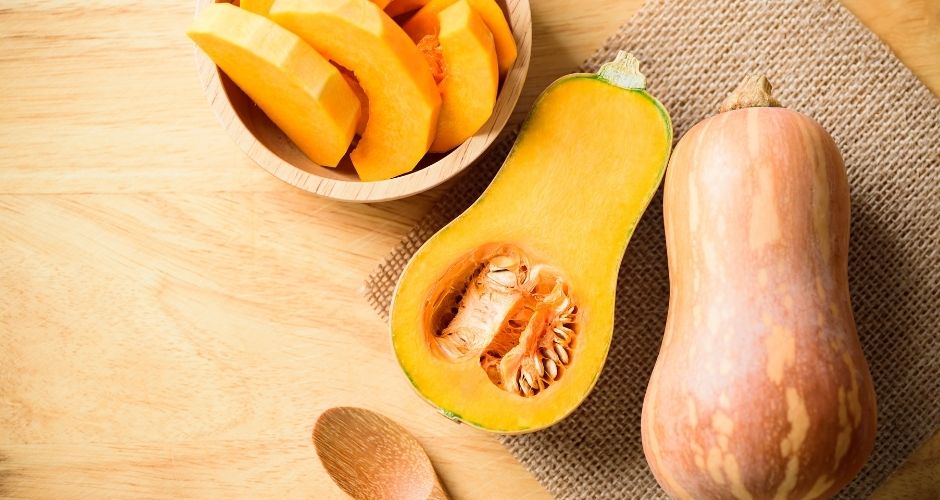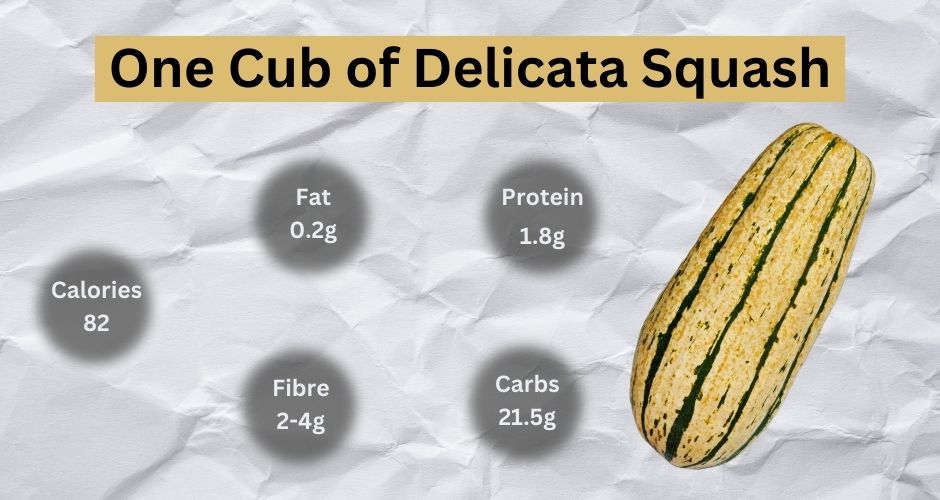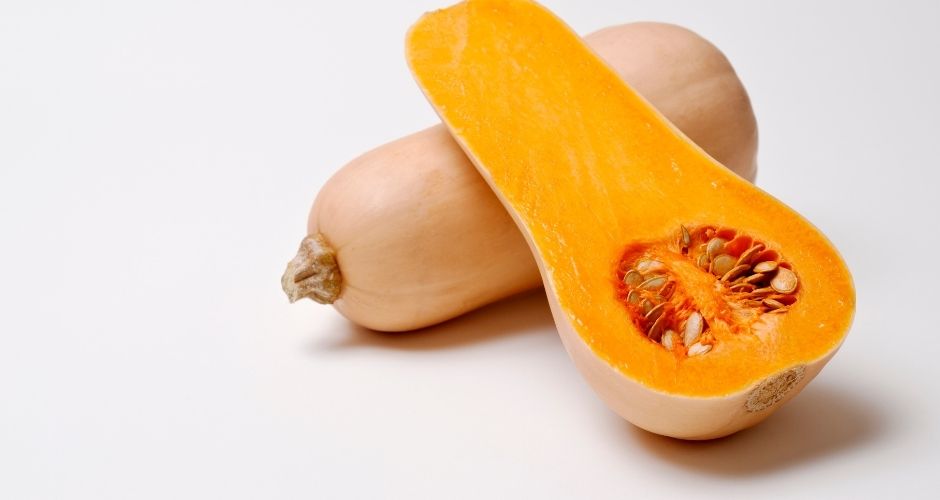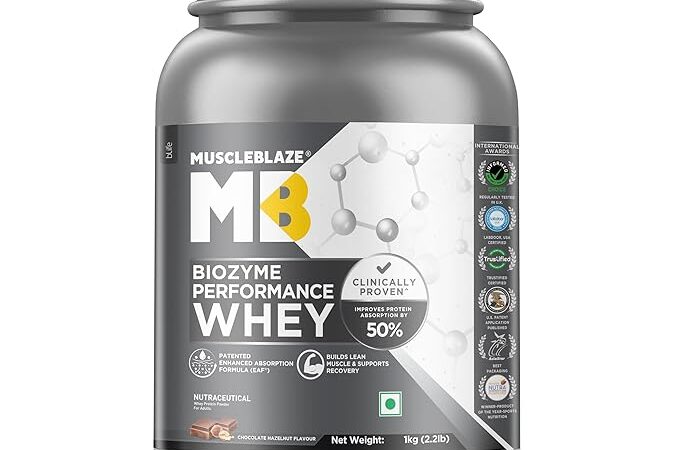Guide on Nutritional Benefits of Squash

Squash, a versatile and nutritious vegetable, comes in various shapes, sizes, and colours, offering multiple health benefits. Whether you enjoy it roasted, steamed, mashed, or incorporated into soups and stews, squash adds flavour, texture, and essential nutrients to your meals.
In this guide, we’ll explore the nutritional benefits of squash and how to incorporate it into your diet for optimal health.
Nutritional Profile of Squash
Squash is low in calories but rich in essential vitamins, minerals, and dietary fibre. Here’s a breakdown of its nutritional profile per 1-cup serving (approximately 116 grams) of cooked squash, particularly winter squash varieties like butternut, acorn, and spaghetti squash:
1. Vitamins:
- Vitamin A: Squash is an excellent source of beta-carotene, a precursor to vitamin A, which supports eye health, immune function, and skin health.
- Vitamin C: This antioxidant helps boost the immune system, promotes collagen production, and enhances iron absorption.
- Vitamin B6: Involved in various metabolic processes, vitamin B6 plays a role in energy metabolism and neurotransmitter synthesis.
2. Minerals:
- Potassium: Squash is a good source of potassium, an essential mineral that helps regulate blood pressure, fluid balance, and muscle function.
- Magnesium: Important for muscle and nerve function, magnesium also contributes to bone health and energy metabolism.
- Manganese: This trace mineral acts as a cofactor for several enzymes involved in metabolism and antioxidant defence.
3. Dietary Fiber:
Squash contains dietary fibre, which promotes digestive health, regulates blood sugar levels, and supports weight management by promoting satiety.
4. Calories:
- One cup of sliced yellow squash, which weighs approximately 196 grams, contains about 18 calories.
- Squash and zucchini are both low-calorie vegetables that can be a healthy addition to your diet. Here are the approximate calorie counts for one cup (about 124 grams) of each: Squash: Approximately 18 calories per cup, Zucchini: Approximately 20 calories per cup
- Yellow Zucchini: Approximately 18 calories per cup

Health Benefits of Squash
Squash, encompassing a variety of types such as butternut, acorn, and delicata, offers not only delicious flavours but also an array of health benefits. From providing essential vitamins and minerals to supporting overall well-being, here are some of the vital health benefits of incorporating squash into your diet:
- Rich in Nutrients: Squash is packed with essential nutrients, including vitamins A, C, and E, as well as potassium, magnesium, and fibre. These nutrients support immune function, promote healthy skin, and maintain proper digestion.
- Supports Eye Health: Squash is exceptionally high in vitamin A, essential for maintaining good vision and eye health. Consuming foods rich in vitamin A, such as squash, can help reduce the risk of age-related macular degeneration and other eye-related issues.
- Boosts Immune Function: The vitamin C content in squash helps strengthen the immune system by supporting the production of white blood cells, critical players in the body’s defence against infections and illnesses.
- Promotes Heart Health: Potassium, a mineral found in squash, is vital in regulating blood pressure and supporting heart health. Including potassium-rich foods like squash in your diet can help lower blood pressure and reduce the risk of heart disease.
- Aids in Weight Management: Squash is low in calories and rich in fibre, making it a great addition to a weight-loss or weight-management diet. The fibre content helps promote feelings of fullness and satiety, which can prevent overeating and support healthy weight management.
- Supports Digestive Health: Squash fibre promotes digestion by adding bulk to stool and preventing constipation. Additionally, squash contains water, which helps keep the digestive system hydrated and functioning properly.
- Anti-inflammatory Properties: Certain compounds in squash, such as beta-carotene and antioxidants, possess anti-inflammatory properties that can help reduce inflammation and lower the risk of chronic diseases like arthritis and heart disease.
- May Aid in Blood Sugar Control: Some studies suggest that squash’s fibre and antioxidant content may help regulate blood sugar levels and improve insulin sensitivity, making it beneficial for individuals with diabetes or those at risk of developing the condition.
Incorporating Squash into Your Diet
With its rich flavours and versatile nature, squash can be a delightful addition to your meals, adding taste and nutrition. Whether you’re a fan of delicata squash, butternut squash, or any other variety, there are numerous creative ways to enjoy this nutritious vegetable. Here are some delicious ideas for incorporating squash into your diet:
- Roasted Squash Medley: Combine different types of squash, such as butternut, acorn, and delicata, with other seasonal vegetables like carrots, onions, and Brussels sprouts. Toss them in olive oil, sprinkle with your favourite herbs and spices, and roast until tender and caramelized for a flavorful side dish or hearty main course.
- Squash Soup: Puree-cooked squash with vegetable broth, onions, garlic, and warming spices like ginger and nutmeg to create a creamy and comforting soup. Garnish with a dollop of Greek yoghurt or a sprinkle of toasted seeds for added texture and flavour.
- Stuffed Squash: Hollow out squash halves and fill them with a savoury mixture of quinoa, vegetables, herbs, and cheese. Bake until the squash is tender, and the filling is golden brown for a satisfying and nutritious meal.
- Squash Noodles: Use a spiralizer to turn squash into noodles, also known as “noodles” or “zoodles.” Toss them with your favourite pasta sauce or stir-fry them with protein and vegetables for a low-carb and gluten-free alternative to traditional pasta.
- Squash Salad: Slice raw squash thinly and toss it with mixed greens, toasted nuts, dried fruit, and a tangy vinaigrette for a refreshing and nutritious salad. Add grilled chicken or tofu for a protein boost and serve as a light lunch or dinner option.
- Squash Casserole: Layer thinly sliced squash with onions, garlic, cheese, and breadcrumbs in a baking dish. Bake until bubbly and golden brown for a comforting and satisfying dish perfect for potlucks or family dinners.
- Squash Sweets: Don’t forget about the sweet side of squash! Incorporate cooked and mashed squash into baked goods like muffins, bread, pancakes, and desserts like pies and cakes for added moisture and flavour.
- Squash Smoothies: Blend cooked squash with bananas, spinach, almond milk, and your favourite protein powder for a nutritious and filling smoothie perfect for breakfast or post-workout fuel.
Is Squash a Starch?
While some may wonder if squash is a starch due to its carbohydrate content, it’s essential to understand that not all squash varieties are starchy. Delicata squash, for example, is relatively low in carbohydrates compared to other starchy vegetables like potatoes. However, winter squash varieties like butternut squash contain starch, albeit in moderate amounts. Ultimately, squash can be part of a balanced diet, whether you’re watching your carb intake or not.
Delicata Squash Nutrients: A Powerhouse of Nutrition
Delicata squash is known for its creamy and sweet flesh, making it a favourite among squash lovers. But did you know that it is also a nutritional powerhouse? Let’s look at the essential nutrients in delicata squash and how they contribute to a healthy diet.

Delicata Squash Nutrition Facts
- Delicata squash is low in calories, making it an excellent choice for those watching their weight. One cup of cooked delicata squash contains only 60 calories.
- It is a rich source of vitamins A and C, crucial in maintaining a healthy immune system and promoting good vision.
- Delicata squash also provides significant amounts of potassium, a mineral that helps regulate blood pressure and supports muscle function.
- Additionally, delicata squash is a good source of dietary fibre, which aids in digestion and promotes a feeling of fullness.
Delicata Squash Carbs: The Energy Source
Regarding carbohydrates, delicata squash can be an excellent addition to your diet. While it does contain carbs, it is considered a low-glycemic food, meaning it has a minimal impact on blood sugar levels.
- With around 13 grams of carbohydrates per one-cup serving, delicata squash offers a steady release of energy, making it an ideal choice for those looking to maintain stable blood sugar levels.
- On average, one cup (approximately 116 grams) of cooked delicata squash contains about 40 calories.
- The fibre content in delicata squash helps slow digestion and the absorption of sugars, further contributing to its low-glycemic nature.
Butternut Squash: A Starchy Delight
Butternut squash is a winter squash known for its sweet flavour and creamy texture. While it is higher in carbohydrates than delicata squash, it brings its nutritional benefits.
- A one-cup serving of cooked butternut squash contains approximately 22 grams of carbohydrates, making it a moderate-carb choice.
- It is packed with vitamins A and C and significant amounts of potassium and magnesium.
- Butternut squash also offers dietary fibre, supporting a healthy digestive system.
- On average, one cup of cooked butternut squash contains approximately 82 calories.

Acorn Squash: A Nutrient-Dense Option
Acorn squash is another winter squash variety that boasts a rich nutrient profile.
- It provides a range of vitamins and minerals, including vitamins A, C, and B6, potassium, and magnesium.
- With approximately 15 grams of carbohydrates per cup, acorn squash offers a satisfying energy source.
- On average, one cup (approximately 205 grams) of cooked acorn squash contains about 115 calories.
- Its vibrant orange flesh indicates a high beta-carotene content, converted into vitamin A in the body.
In conclusion, squash is a nutrient-rich vegetable with numerous health benefits and culinary possibilities. By including squash in your diet regularly, you can enhance your overall health and well-being while enjoying its delicious flavour and versatility.






